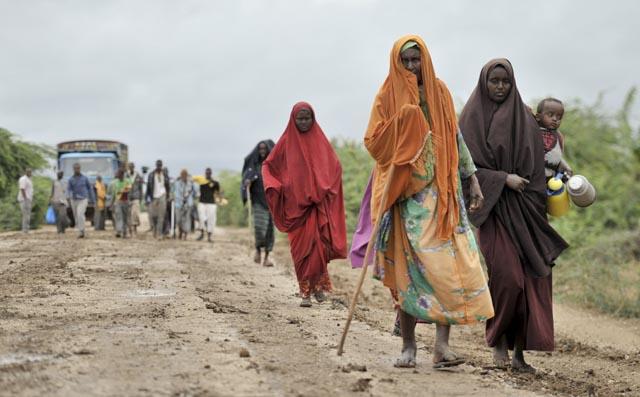You are here
Somalia to halt banned charcoal trade at port recaptured from Al Shabab
By Reuters - Oct 11,2014 - Last updated at Oct 11,2014
BARAWE, Somalia — Somalia’s president said on Saturday he would halt charcoal exports from Barawe, a port town recaptured from an Islamist group who UN investigators said had benefitted from the illegal trade.
The UN Security Council forbade charcoal exports from Somalia in 2012 in a bid to cut off Al Shabab’s funding, but the group largely ignored the ban.
A report seen by Reuters on Friday, the UN Somalia-Eritrea Monitoring group wrote that the militants earned tens of millions dollars in the past year from charcoal exports using the southern Ports of Barawe and Kismayu.
The Al Qaeda-affiliated group wants to impose its strict version of Islamic law on the Horn of Africa nation and has carried out attacks on neighbouring countries such as Kenya.
“Somalia had banned charcoal exports and we also sent a letter to the UN Security Council urging them to do something about the countries which import charcoal from Somalia,” President Hassan Sheikh Mohamud told journalists and residents.
He was speaking during his first trip to Barawe since a force of African Union peacekeepers and Somali army drove out Al Shabab on Sunday. The president arrived by helicopter.
“We urge you to participate in peacemaking and confront anyone who causes chaos,” said the president, who is trying to rebuild a nation that has been shattered by more than two decades of conflict and chaos.
Barawe was Al Shabab’s last major coastal stronghold. Al Shabab lost control of Kismayu in 2012 and it has been under the control of Kenya’s contingent in the African Union AMISOM force since then.
The UN monitors said that, between June 2013 and January 2014, charcoal was mainly exported from Kismayu and Barawe, and since January shipments were primarily made from Kismayu where port operations are supervised by the Ras Kamboni militia and the Kenyan army, which has denied allegations it aided exports.
Charcoal was mainly shipped to the United Arab Emirates, Oman and Kuwait, the UN monitors said.
Losing control of Barawe and the killing last month of Al Shabab’s leader, Ahmed Godane, are big blows to the Islamist group, but Somali officials and Western diplomats say the group has proved adaptable to setbacks, turning to guerrilla tactics.
After controlling Mogadishu and much of the country for several years, it has lost ground but remained a potent fighting force even after being driven out of Mogadishu, the federal capital, in 2011. It has staged frequent bomb and gun attacks.
Last year, the group claimed responsibility for an attack on Nairobi’s Westgate shopping mall, that left at least 67 dead.
“We want to pardon and rehabilitate those who surrender from Al Shabab. We shall eliminate the terrorists from Somalia,” the president, referring to an amnesty for Al Shabab members announced early last month after Godane’s death.
Related Articles
Somalia’s army and African troops deployed forces on Monday inside a strategic port which they retook from Islamist rebels at the weekend, promising residents they would be protected.
US forces have carried out air strikes against the leader of Somalia's Al Qaeda-linked Shabab rebels, with casualties reported but uncertainty hanging over the fate of the main target, officials said Tuesday.
A Kenyan warplane crashed in southern Somalia on Thursday, with the Kenyan military saying the crash was due to technical problems while Somali rebels said they had shot it down with a missile.














